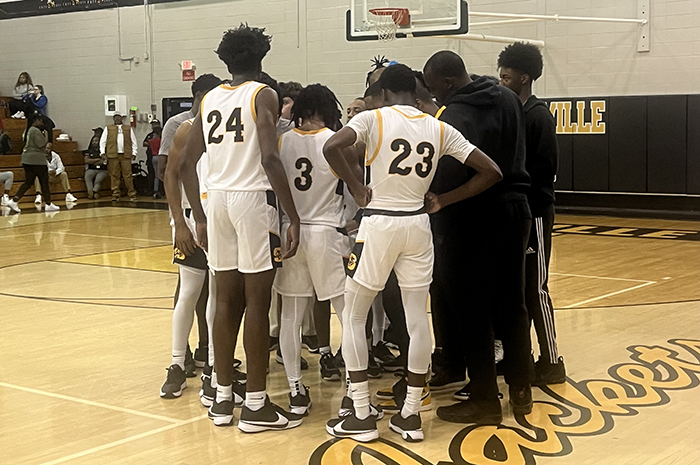STARKVILLE — To his right and just above the desk in John Cohen’s office sits a picture of one of coaching idols — Hall of Fame and former University of Alabama football coach Paul W. Bryant.
It isn’t common to see a picture of a football coach in the office of most baseball coaches in America, but it helps explain the mind-set of Mississippi State University’s fourth-year baseball coach.
“I would hate to compare myself to Bear Bryant, but I grew up a huge fan of everything about him,” Cohen said. “This will sound crazy, but I loved watching (former Alabama men’s basketball coach) Wimp Sanderson and his style.”
The coaching philosophy of Cohen, who has won nearly 59 percent of his games in his 20 years as a college assistant or as a head coach, is similar to the style of a corporate CEO in that he is constantly re-evaluating and looking for the most efficient way to do things.
“I admired (former Oklahoma State baseball coach) Gary Ward as one of my idols and playing at Mississippi State for Ron Polk and Pat McMahon, I really try to incorporate a lot of people’s ideas into what we’re doing here now,” Cohen said.
The plan to rebuild the MSU baseball program into a national power involves creativity, which is something not many people recognize in Cohen, according to his wife, Nelle.
“It took me years to realize I’m married to an artist,” Nelle Cohen said. “The building of programs and creating the atmosphere is John using that side of the brain that is so natural for him to do.”
MSU will try to tap into that creative side to help build on a memorable season in 2011. Last year, MSU returned to the postseason, sweeping through the NCAA Atlanta Regional and advancing to the championship game of the Gainesville Super Regional en route to a 38-25 finish and a No. 15 national ranking.
The march to that point began with back-to-back nationally ranked recruiting classes two years prior that included some of the best pitchers from the states of Mississippi and Alabama.
“We have always felt like the saying (MSU pitching coach) Butch Thompson always uses is correct: You recruit who you want but you get who you are,” Cohen said. “Our kids are great competitors and as high in terms of skill levels than anybody in the country.”
This past season, pitchers Brandon Woodruff and Jacob Lindgren turned down bonus money from the professional organizations that drafted them than Cohen makes in salary for one season at MSU to honor their National Letters of Intent with the Bulldogs.
With seven new starters in the lineup, MSU will begin its season at 6 tonight against Washington State University in the first game of a three-game series at Dudy Noble Field.
MSU Director of Athletics Scott Stricklin describes Cohen, 44, as “one of the smartest people I know”, and someone he will talk to about things that have nothing to do with the MSU baseball program. Stricklin knew Cohen as a former outfielder at MSU when worked in the media relations office as a MSU baseball contact as early a sophomore undergraduate student.
“I’m convinced that while he’s a great baseball coach, don’t get me wrong, if John Cohen wasn’t doing that he’d easily be a lawyer or doctor,” Stricklin said. “That’s how much I think of John and just how smart he is about everything.”
This year, Stricklin and Cohen have collaborated on a project called “The Dudes,” which is a student organization the school hopes will help fill Dudy Noble Field this season. MSU has handed out more than 1,000 T-shirts to MSU students to help brand the organization.
Cohen has a type-A athletic mind-set and holds a degree in English from MSU. He is described by many who know him well as a man of opposing characteristics, someone who is a highly emotional coach and a statistics geek. The son of a prominent Tuscaloosa, Ala., lawyer, Cohen, who the Minnesota Twins drafted in the 22nd round of the 1990 Major League Baseball First-Year Player draft, has had the incredible fortune of earning a living in baseball.
“You can not pigeon hole John in any way because he’s too complex of a person,” Nelle Cohen said. “People say jocks can’t be complex, and I don’t believe that. I see it every day with my husband.”
As a teenager, Cohen lived in England for two years, which has given him a unique perspective. These days, after working primarily with men on and off the field every day, Cohen arrives home to a family of three women: Nelle and daughters Jordan Baker and Avery Lawson.
“When he comes home he’s daddy to those two girls and couldn’t love that role more,” Nelle said. “Our job is to make sure this house is a sanctuary for him. He may not even know this, but I hear him talk to his players in his sleep, so it’s on his mind all the time in a way, but I think people would be amazed at how laid back he is here at home.”
Nelle told her husband he had to make the move from his job as head baseball coach at the University of Kentucky to his alma mater, a job John said is the last position he’ll want.
“She said, ‘Every musician wants to play Carnegie Hall, and Dudy Noble (Field) is the Carnegie Hall of college baseball,” Cohen said.
After a two-hour walk around Lexington, Ky., one late May evening in 2008, the Cohen family wasn’t sure if John would be the next coach at MSU or if he would accept a significant pay raise to stay at Kentucky.
“I told (former MSU Director of Athletics) Greg (Byrne) I have a real affection for this university and Starkville, Mississippi, because it represents a lot of things that I’m about,” Cohen said. “This university is about blue collar, work your tail off, and it’s not about status. It’s about what you’ve done. It’s about the character of who you are.”
Nelle said it didn’t occur to her how important the move was until she woke her husband up at 5 a.m. one day to tell him the family would be fine if he decided to return to MSU.
“He said to me, ‘I don’t think I’m going because you love Lexington and I’ve moved you and the kids enough,” Nelle Cohen said. “I leaned over and said, ‘John, you have to take this job’, and he said, ‘Thank you.’ He was waiting for me to say it was OK for all of us, and now I love it here in Starkville.”
When asked last week about his goals for MSU, Cohen sat in the opponents’ dugout and pointed to the outfield walls to signal the school hasn’t won a national championship.
“Ron Polk is a legend in this game, and that (national title) may be the only thing he didn’t achieve at Mississippi State,” Cohen said. “I played with 40 other guys at MSU that would’ve given our right arm to be able to give that to coach Polk. He deserved it, so I would love to honor his legacy by being able to win a national championship.”
Cohen earned a Southeastern Conference championship and was named the league’s coach of the year in 2006, feats he achieved twice in the Southland Conference at Northwestern State.
After two years of boosting the University of Florida’s offensive output as an assistant coach for McMahon, he was named coach at Kentucky, which was then a last-place program. He went on to post a pair of school-record 44-win seasons on the way to a 175-113-1 record in five seasons (321-197-1 overall in nine seasons). Stricklin watched closely as Cohen built Kentucky into a winning program.
“I got hired about two months before John at Kentucky, so I got to watch the process of him rebuilding that program into an SEC champion,” Stricklin said. “Even though some athletics directors might have been a little impatient after the first two seasons (at MSU), I trusted what I saw at a previous place. He didn’t have to convince me the plan works. I’d seen it work before.”
Cohen can be misunderstood as someone who pushes above and beyond the limits, which is the basis of a civil suit by a former player against him. Former MSU pitcher Forrest Moore filed a 17-page lawsuit in Oktibbeha County Circuit Court in May 2011 against MSU and John Cohen, claiming negligence by the coaching staff contributed to an elbow injury.
The lawsuit claims the MSU baseball program is responsible for the deterioration of his pitching arm and caused an injury that left him unable to pursue a professional baseball career.
The lawsuit includes details about practice sessions from Cohen’s first season, which included workouts that were longer, tougher, and more competitive than returning players were used to.
“I really think coach Cohen gets a bad rap when he’s seen yelling at a player or people are still fighting against him around the program or community,” former MSU third baseman Jarrod Parks said. “As a player, did I understand him all the time? No. But now that I’m a year into professional baseball where I’m just a body, I realize John Cohen cares about me the person.”
Some of the Bulldogs didn’t realize Cohen was trying to establish a long-term formula to rebuild the program.
“My respect for coach Cohen began from day one simply because he played (at MSU) and was an All-SEC player,” Parks said. “Practices were hard and don’t let anybody fool you, they were hard. But if you put in the work, he respected you, too. I knew if I had a problem I could go to him because he dealt with the same thing at Mississippi State.”
Cohen took in all the criticism after he returned to MSU to replace Polk, who publicly lobbied for someone else to get the job. Things didn’t get any easier after MSU went 48-62 in his first two seasons and failed to reach the SEC tournament.
“I think coach Cohen does get a bad rap because all people see on game days in this guy yelling at umpires and screaming at players,” Parks said. “I don’t have a problem saying that in that clubhouse we knew our coach had our back every day. We knew he would fight for us, and that’s what made last year so special.”
Cohen insists he will continue to do his job the same way and that he is committed to re-establishing MSU as a power in college baseball.
“Different styles work for different coaches,” Cohen said. “The biggest mistake a lot of coaches make, in my opinion, is they try and be somebody else other than themselves.”
You can help your community
Quality, in-depth journalism is essential to a healthy community. The Dispatch brings you the most complete reporting and insightful commentary in the Golden Triangle, but we need your help to continue our efforts. In the past week, our reporters have posted 46 articles to cdispatch.com. Please consider subscribing to our website for only $2.30 per week to help support local journalism and our community.






